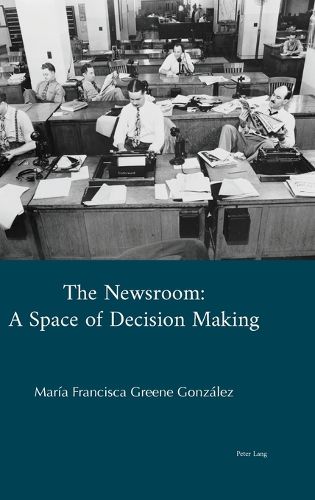Readings Newsletter
Become a Readings Member to make your shopping experience even easier.
Sign in or sign up for free!
You’re not far away from qualifying for FREE standard shipping within Australia
You’ve qualified for FREE standard shipping within Australia
The cart is loading…






This title is printed to order. This book may have been self-published. If so, we cannot guarantee the quality of the content. In the main most books will have gone through the editing process however some may not. We therefore suggest that you be aware of this before ordering this book. If in doubt check either the author or publisher’s details as we are unable to accept any returns unless they are faulty. Please contact us if you have any questions.
Journalists are in the daily business of making the unseen visible, of connecting us to the world beyond our direct experience. In doing this, objectivity becomes a pivotal issue, and a highly debated topic both in academia and everyday life. The first systematic approach to the issue of objectivity was initiated by the discipline of mass media sociology : this approach, which was at its peak between 1970 and 1980 in the United States, proposed a completely scientific, mathematical solution to the problem of objectivity. This book is an overview of academic work on journalistic objectivity between the 1970s and 1980s by American mass media sociologists such as Herbert Gans, Gaye Tuchman, Mark Fishman, Todd Gitlin, Edward Epstein, Harvey Molotoch, Marilyn Lester and Michael Schudson, observing and comparing their positions on journalistic routines and their influence on the news. The ideal of objectivity is discussed from the points of view of the traditional and sociological schools, and weighed against the constant tension between a journalist’s search for truth and their perception of it, as well as the constraints posed by the organization for which he or she works.
$9.00 standard shipping within Australia
FREE standard shipping within Australia for orders over $100.00
Express & International shipping calculated at checkout
This title is printed to order. This book may have been self-published. If so, we cannot guarantee the quality of the content. In the main most books will have gone through the editing process however some may not. We therefore suggest that you be aware of this before ordering this book. If in doubt check either the author or publisher’s details as we are unable to accept any returns unless they are faulty. Please contact us if you have any questions.
Journalists are in the daily business of making the unseen visible, of connecting us to the world beyond our direct experience. In doing this, objectivity becomes a pivotal issue, and a highly debated topic both in academia and everyday life. The first systematic approach to the issue of objectivity was initiated by the discipline of mass media sociology : this approach, which was at its peak between 1970 and 1980 in the United States, proposed a completely scientific, mathematical solution to the problem of objectivity. This book is an overview of academic work on journalistic objectivity between the 1970s and 1980s by American mass media sociologists such as Herbert Gans, Gaye Tuchman, Mark Fishman, Todd Gitlin, Edward Epstein, Harvey Molotoch, Marilyn Lester and Michael Schudson, observing and comparing their positions on journalistic routines and their influence on the news. The ideal of objectivity is discussed from the points of view of the traditional and sociological schools, and weighed against the constant tension between a journalist’s search for truth and their perception of it, as well as the constraints posed by the organization for which he or she works.